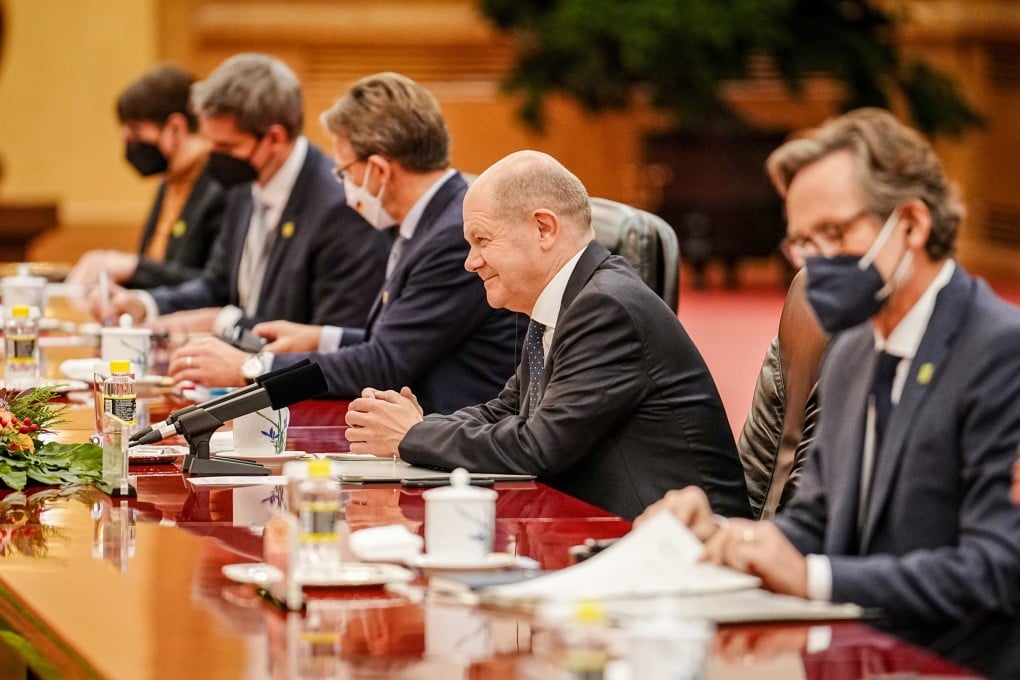Opinion | Germany’s Scholz scored some major wins during his trip to Beijing, but his own government doesn’t think so
- The German chancellor’s meeting with Xi Jinping charted a path for limiting dependency on China without decoupling
- Unconvinced, however, are Scholz’s own coalition members, who want a complete restructuring of Sino-German relations

The leader of the Green Party, Ricarda Lang, called for a reduction in German dependence on China and a definition of areas “from which we keep China out”, while the Liberal Democrats (FDP) insisted on action at the EU level. “We need new regulations in the foreign trade law,” demanded the party’s vice-chair, Johannes Vogel. “We need a China strategy together with other democracies,” he urged.
What sounds like the usual political rhetoric emanating from Berlin is worrisome for Scholz as these demands were not made by the opposition but by his two coalition partners.
On the back of these political statements, the public’s view of China also seems to have changed. According to an opinion poll by research institute Infratest dimap, 49 per cent of Germans want to scale back relations with China.

